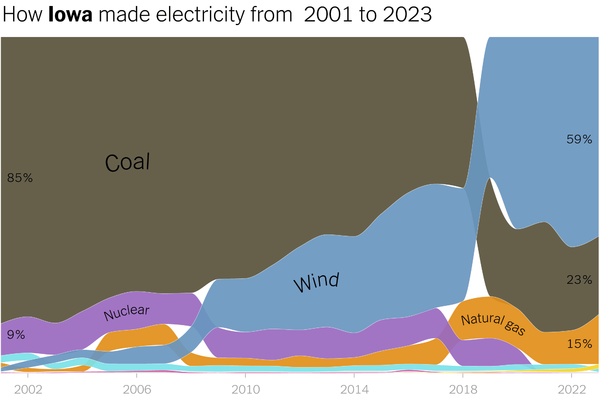The court’s decision was the third recent victory for regulators.
The conservative-majority Supreme Court has taken an aggressive stance against many environmental rules in recent years, but three small victories for regulators this month have left some analysts wondering whether a shift is underway.
The latest sign came on Wednesday, when the justices declined to block the Environmental Protection Agency from imposing new restrictions on power-plant emissions while the rule is challenged in a lower court. The rule would require many coal- and gas-burning plants to capture up to 90 percent of greenhouse gas emissions by 2032.
Also this month, the court declined to act on two other emergency applications challenging E.P.A. rules. Those centered on mercury, a neurotoxin, and methane, a potent greenhouse gas.
These recent decisions mark a significant departure from earlier this year, when the justices blocked the “good neighbor plan,” an E.P.A. policy to reduce air pollution that drifts across state lines, while it’s challenged in a lower court.
That decision was criticized as a misapplication of the Supreme Court’s authority to intervene in lower-court cases on an emergency basis, using what is sometimes called a shadow docket, because the Supreme Court’s reasoning is rarely explained. The use of the emergency docket has expanded greatly in recent years, and the court has granted several requests to temporarily block environmental rules while cases are pending.
Richard Lazarus, a professor of environmental law at Harvard, said Wednesday’s action “may well be a major pivot point” away from the path the court set out on eight years ago, when it blocked President Barack Obama’s Clean Power Plan, which also regulated power-plant emissions. It was the first time the Supreme Court had blocked an E.P.A. air pollution rule before the full case was heard by a lower court.
